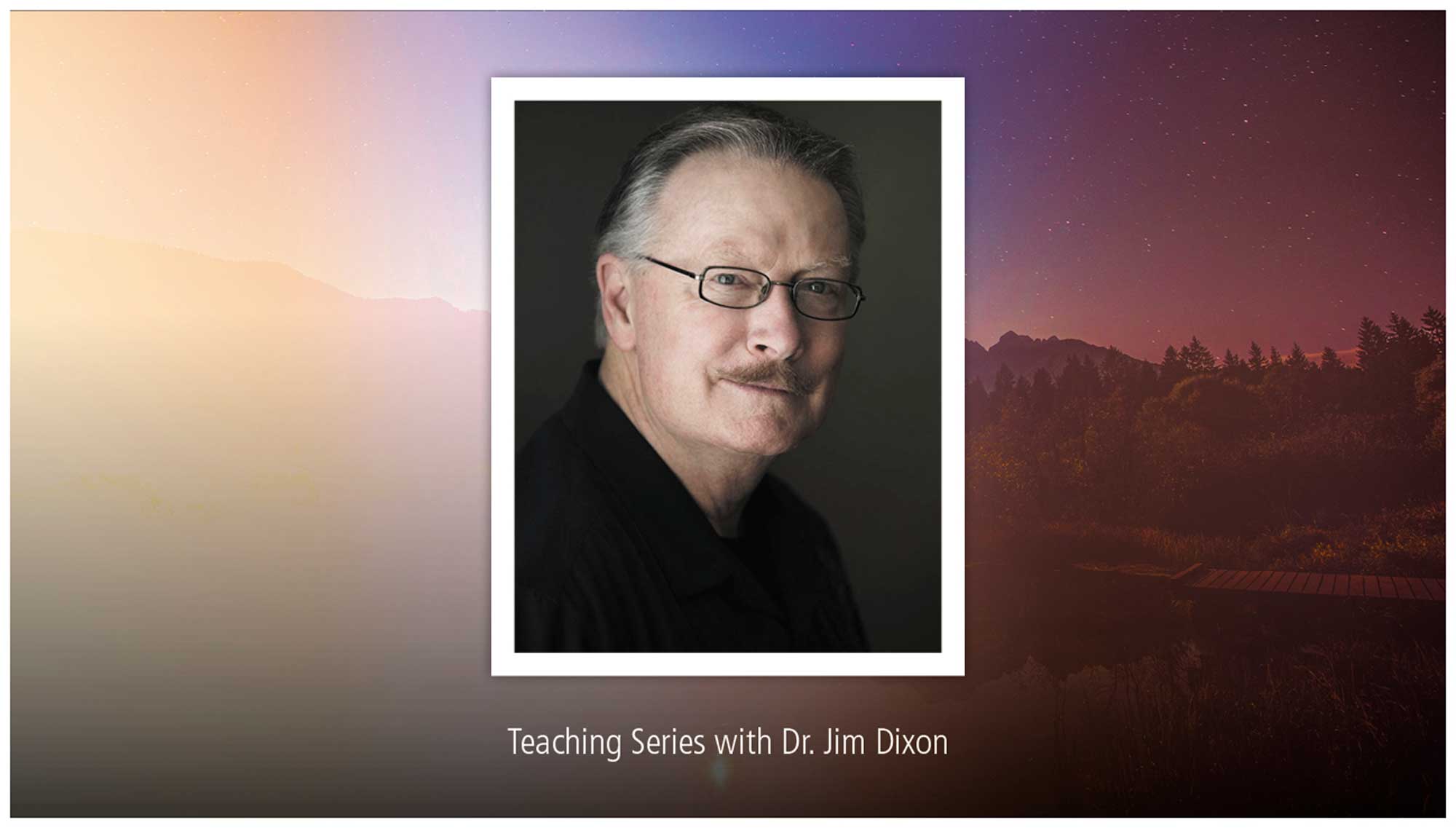THANKSGIVING SERVICE
DR. JIM DIXON
PHILIPPIANS 4:4-9
NOVEMBER 18, 1990
It was in 1492 that Christopher Columbus arrived here in America. When he came, he brought with him a Portuguese-Jewish interpreter whose name was Jose de Torres. It is said that Columbus and his party, having arrived here in America, saw a large bird indigenous to America never seen in Europe. When Jose de Torres saw this bird, he said, “tukki tukki,” which in Hebrew means “big bird, big bird.” Thus, the turkey received its name. This is kind of a cute story, often told, probably apocryphal. In all likelihood, this story is not true.
In fact, today most historians and ornithologists believe that what really happened was this: the Europeans arrived here in America and they saw our bird, and they confused it with the Guinea foul, which centuries earlier had been taken from Guinea in Africa and brought to Europe through Turkey, and had been nicknamed the turkey. When they saw our bird and confused it for the Guinea foul, they called our bird the turkey.
Now, the reality is most of you probably don’t care. You really don’t care how the turkey came to be called the turkey. You just want to make sure that there’s a turkey on the table Thursday on Thanksgiving Day, and that you have a little turkey on your plate. I think you’d have to agree, the turkey has become the primary symbol of thanksgiving here in America. Thereby, it has become a kind of symbol of American abundance and prosperity. In a sense, this is tragic, not that the turkey would be associated with Thanksgiving, but that Thanksgiving would be associated with abundance and blessing. Because you see, as Christians, the Bible tells us that we’re to give thanks in all circumstances, not simply in situations of abundance and obvious blessing, but in all circumstances. We are to be thankful.
The reality is, the first Thanksgiving on December 4th, 1619 in Vermont was not a feast. It was a day of prayer and fasting. Even the harvest celebration in 1621 declared by Governor Bradford where there was feasting, was not a situation of abundance and obvious blessing. The pilgrims had lost many of their people through disease and suffering. Many had died. The past had been painful. The future looked bleak. And yet, because of their faith in Jesus Christ, they stopped to give thanks. That’s biblical, “Give thanks in all circumstances for this is the will of God in Christ Jesus for you.”
Now, sometimes I think you would agree it’s not easy to be thankful, and sometimes our situations don’t seem to warrant Thanksgiving. Take this last week, for instance, I had oral surgery on Tuesday and they cut my gums above my front teeth. They cut the gums an area a little over an inch wide, cut the gums and then folded my gums up. Then they came in and they removed this growing infection that had grown into the bone, and they carved out part of the bone. Then they came in through the top of one of my teeth, down through the root. Now, I got to say, I didn’t, I’m kind of a wuss when it comes of this stuff, and I couldn’t believe that the guy was even telling me this stuff, let alone doing it, you know? That was Tuesday.
Wednesday morning, Wednesday morning I woke up and I was barely human in my appearance. I literally, my top lip had swollen to where it was out an inch further than my bottom lip. The swelling was kind of up under my nose and it was pushing my nose out. But you see, my nose couldn’t move out an inch so it widened as well. Wednesday night, Drew and Heather were debating whether I looked more like a rat or a chipmunk. Somehow, this week, it appears that I’ve managed to fracture the root of the tooth they were trying to save. So now it looks like I’m going to have to have the few teeth just pulled out and then go ahead and build a bridge.
Now, I got to say, I don’t know how you feel about dental work, but for me, that’s real close to being a nightmare. And yet, in the situation, even in situations like this, the will of God is that we be grateful. I mean, it doesn’t matter what your week is like, doesn’t matter what you’re going through. I mean, you may be going through things far worse, but whatever you’re going through, God wants you to be grateful. He wants you to have a thankful heart. “Give thanks in all circumstances, rejoice always.” It’s really a choice of attitude, how you go through life.
You see, our passage of scripture for today says, “Whatever is true, whatever is honorable, whatever is just, whatever is pure, whatever is lovely, whatever is gracious, if there be any excellence, if there be anything worthy of praise, think on these things.” That’s a choice you make, whether to be grateful or not, whether to be positive or negative. As Christians, we’ve been called to be positive and to be a thankful people in all circumstances. I think it would help all of us to be thankful if we would just focus on a couple of realities that is true of us in our Christian life. I think if we would focus on the reality of grace, we’d be more thankful.
You see, the reality is if you’re a Christian, you have come into God’s amazing grace, and you have every reason to be thankful. This past week, I was reading about Golda Meir, who of course had been the prime minister of Israel, and she’s written an autobiography, or she wrote an autobiography called My Life. In her autobiography, she described the life of her grandfather who had been forced to serve for 16 years in the Russian Army. Her grandfather, being a devout Jew, continued even while serving in the Russian army for those 16 years to practice his Judaism faithfully. He observed all the holy days, and he tried to obey all the Jewish laws no matter how minute. He was ridiculed and the other soldiers made fun of him, but he continued to be faithful. After 16 years, when Golda Meir’s grandfather got out of the Russian military, for the remainder of his life he chose to sleep on a stone floor. For the remainder of his life, he used a rock for a pillow.
He did these things because he wanted to make atonement for whatever sin he may have inadvertently committed through the preceding years. Now, it’s hard to make fun of so sincere in their faith, hard to laugh at someone who so desperately wants to please God. But it’s tragic. I mean, it’s really tragic in light of the Christian gospel that anyone would seek through self-abasement to atone for their own sin. And as Christians, how grateful we ought to be, how grateful we ought to be, to know that our sin is forgiven, not by our suffering, but by Christ’s suffering. To know that our sin is forgiven as Christians, not by our atonement, but by His atonement. That having come to Christ and received Him as Lord of life and Savior from sin, our sin is forgiven and we’ve escaped hell.
We are destined for heaven, for all eternity in resurrection bodies no longer subject to decay with eternal fellowship and blessing. If you believe that, and if you know that and you really have confidence in God’s grace, you’re going to be grateful. No matter what your circumstances in this life, no matter what your circumstances in this world.
There’s a second reality that should make you grateful as a Christian, the reality of his grace and the reality of his sovereignty. I mean, do you really believe God is sovereign in your life? As a Christian, you should. If you really believe He is sovereign, you know that He has a plan for you and it’s good. You know He’s going to work things together for good. Romans 8:28, “All things work together for good, for those who love the Lord and are called according to his purpose.” Do you really believe that?
I mean, as a Christian, your life’s kind of like a puzzle and you don’t see the picture, you just see the pieces, and you don’t see all the pieces, just a few of them. Some of the pieces look kind of dark and ominous, and some of the pieces look pretty good. If you’re looking at the dark, ominous pieces, you might despair. If you look at the good pieces, you might have cheer, but you can’t see the total picture. God wants you never to despair. He sees the total picture, and He knows it’s going to work together for good, not only your good, but for the good. Your life is going to produce good in this world if you belong to Jesus Christ and you love Him. “All things do work together for good.” Your life’s not in vain. God has a purpose for you and is wondrous.
I know some of you have heard of Peter Marshall. Peter Marshall was of course the pastor of New York Avenue Presbyterian Church in Washington, D.C. and he was a man of great oratory, a great preacher of God’s word, a great love for Christ. He really, truly loved people for Christ’s sake. He died young. He died in the prime of his life and in the prime of his ministry with a sudden heart attack. A lot of Christians said, “How come, I mean, why would God allow this in the midst of a fruitful dynamic ministry, Peter Marshall died and why? And how could God allow this?” But you see, God knew what He was going to do.
God knew that Catherine Marshall, Peter Marshall’s wife, would in her grief begin to pour out her faith in a book entitled A Man called Peter, a bestseller. Through that book and subsequent books and articles, really the ministry of Peter Marshall was amplified to reach millions of lives. If he had lived for a thousand years in this world, he never would’ve reached so many. It was all part of the sovereign plan of God. Do you believe in the sovereignty of God in your life, that he’ll bring some great good by His power through your life as a Christian? He wants you to believe that. If you believe that, you’re going to be able to be grateful. No matter how dark the clouds, no matter what the circumstances of life, you’re going to believe it’s going to produce good.
You know, there’s a man named Lewis Thomas, Dr. Lewis Thomas. With this we’ll close our message. He wrote a book called The Medusa and the Snail. Now, Dr. Thomas is a pathologist well known, and in this book called The Medusa and the Snail, he describes the Medusa, which is a jellyfish, and a particular snail which belongs to the Nudibranch variety of snails. Both of these, the Medusa jellyfish and this Nudibranch snail are found in the Bay of Naples. Now both live in the Bay of Naples, and it’s common for the jellyfish to swallow this particular snail, to eat it. The snail is then taken into the jellyfish’s digestive system. But the snail doesn’t die because the snail is protected by the shell. The snail then begins to grow inside the shell, and it begins to eat the jellyfish for food. By the time the snail is fully grown, it has completely devoured the jellyfish, which once consumed it. This is a fact of nature.
Now, Dr. Thomas poses the question, what’s eating you inside? What have you taken into yourself? Have you taken bitterness inside? Have you taken resentment inside, or worry or envy? These things, you see, once you take them in, they begin to eat you from within. You can begin to develop a critical spirit, a negative attitude, which as Christians we’re never meant to have.
You know, some people, you’ve heard it said, enter a room, they light up a room when they enter it, and other people light up a room when they leave it. As Christians, we’re called to be the former type of person, we’re called to be people who rejoice and who give thanks in all circumstances. There’s a choice. And if as a Christian you have a critical attitude, I mean, it really isn’t likely that you’re going to be able to leave here today and say, “Well, I’m going to change, I’m going to be positive.” That’s just too big of a jump. But you can take one step and you can take one day at a time and you can wake up every morning and you can say, “Lord Jesus, here’s another day for you. Help me to focus on your grace and help me to trust your sovereignty. Help me to give thanks today, Lord, and be a grateful person today.” Now, some days you’re going to blow it. I mean, we all do. But then you have another day in which Christ can transform your heart, that we might be the kind of people Christ wants us to be.
Well, this is communion and Thanksgiving communion. Of course, in some traditions, communion is called the Eucharist. And how appropriate that is because the word Eucharist comes from the biblical word, “eucharisto,” which is the Greek word for thanksgiving. You see, communion is a time when we are meant to give thanks to Christ. Your thankful heart, your transformation, my transformation can begin this morning as we come to the Lord with thanksgiving and begin to thank Him for his blessings in the midst of whatever circumstances we find ourselves. We begin to choose to be grateful, and to thank Him for His grace, and to thank Him because in His sovereignty. He is going to work all things together for good. Let’s have a word of prayer before we partake of the bread and cup.




